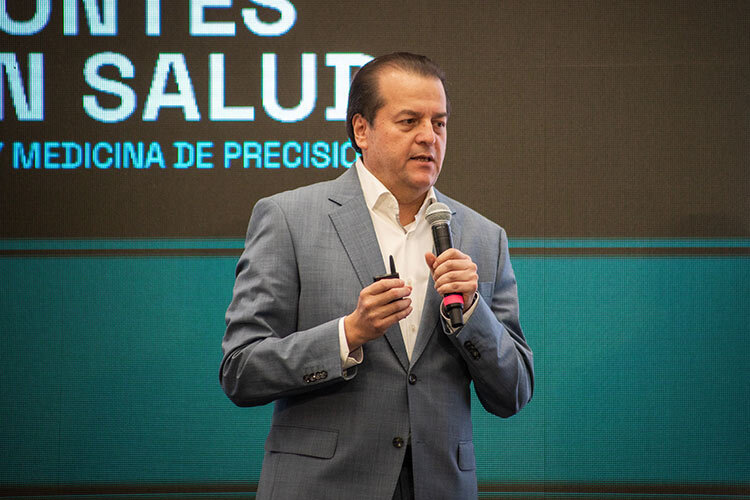Using scientific research to understand and combat the multiple factors behind the prevalence of obesity in Mexico could be one of the best strategies for truly achieving change.
For years, worrying figures about the problem have been reported in the country. For example, the fact that one in three Mexicans lives with obesity or is overweight, one of the highest rates at a global level, according to the Organization for Economic Cooperation and Development (OECD).
That is why, from May 8 to 9, 2024, the Institute for Obesity Research (IOR) of Tec de Monterrey will hold its third International Conference on Obesity Research.
According to Marco Rito, director at IOR, this year’s Conference will center on the impact of this condition on the different stages of life and the multidisciplinary approach needed to solve the problem.
This idea was born in response to the fact that Mexico ranks first in childhood obesity in the world, as well as the fact that it is a complex problem that involves many factors that go beyond nutrition.
“We must be aware of obesity at all stages and propose concise solutions that have a real impact,” says Rito in an interview with TecScience.
The Conference will feature keynote lectures by national and international experts on the subject, talks, and scientific posters on the different research projects being developed within IOR.
Those interested can attend the Conference in person, at La Carreta Pavilion, on the Monterrey Campus, or virtually, through the live.tec.mx platform.
“We want to raise concern and interest [on the subject]among attendees,” says Rito.
The incidence of obesity currently affects most countries around the world and it is expected to rise, with estimates that by 2035 one in four people will have it, according to the World Obesity Federation.
<!–[if lte IE 8]>
<![endif]–> hbspt.cta.load(5092991, ‘2c58ad21-0b81-4245-a63c-00792bd02bdf’, {“useNewLoader”:”true”,”region”:”na1″});
hbspt.cta.load(5092991, ‘2c58ad21-0b81-4245-a63c-00792bd02bdf’, {“useNewLoader”:”true”,”region”:”na1″});
Obesity, a multifactorial problem
This problem becomes relevant because obesity can lead to health complications, such as an increased risk of suffering from cardiovascular diseases, mental illnesses, diabetes, non-alcoholic fatty liver, dyslipidemias, metabolic syndrome, and multiple types of cancer.
Although many think that it is only due to factors related to nutrition, in reality, obesity is a multifactorial problem that involves aspects such as genetic predispositions, mental illnesses, socioeconomic aspects, lack of access to healthy foods, an obesogenic environment, and the lack of public policies.
“Obesity is a multifactorial problem that has not been adequately addressed for several reasons, one of them is that we need to know more,” says Rito.
The fact that the Conference has a multidisciplinary approach echoes the organization of IOR which, through five units −Healthy Foods, Bioengineering and Medical Devices, Integrative Biology, Experimental Medicine and Public Policies−, seeks to attack the problem from different angles, without stigma or prejudice.
The increase in obesity affects most countries around the world; however, the most affected are low- and middle-income countries, which include Mexico and much of Latin America, according to the World Obesity Atlas 2022.
For this reason, both the Conference and IOR seek to address the problem from a local perspective that takes into account the lack of information currently available about the genetics of Latin Americans that could make them more likely to live with obesity.
“Mexicans get sick differently than Anglo-Saxons,” says Rito.
Thus, by integrating the research carried out in Mexico, Latin America, and the world, the director of the IOR and his team of researchers believe that it will be possible to propose new solutions that address the problem comprehensively, practically, and effectively.
“Our dream is to have better foods, new treatments and also influence the public policy agenda,” says Rito.
Did you find this story interesting? Would you like to publish it? Contact our content editor to learn more at marianaleonm@tec.mx


















